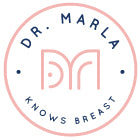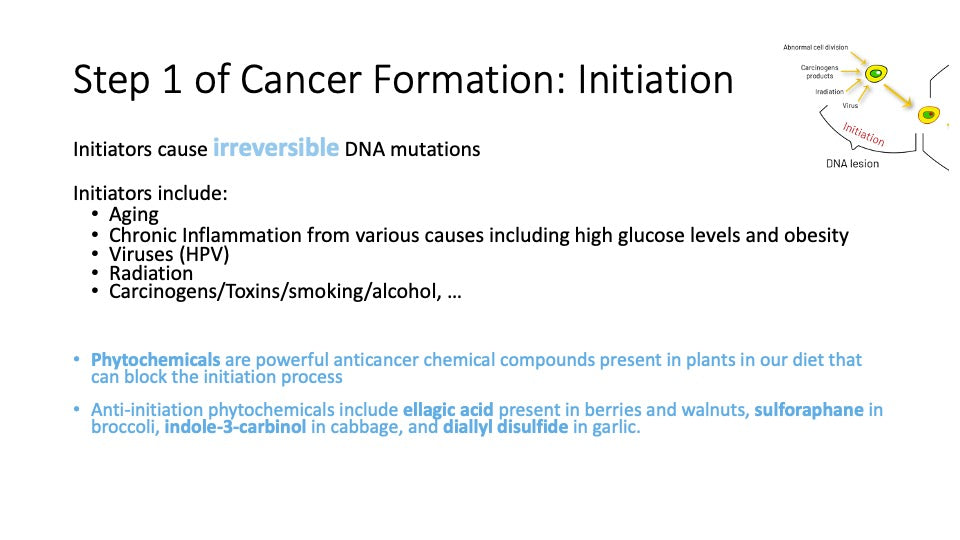
Initiation
Initiation is the first step in cancer development. This is where the microtumors we have start. Cells can suffer irreversible changes (mutations) in their DNA that arise spontaneously or are caused by exposure to a carcinogenic agent, which can include external carcinogens (for example, toxic chemicals and pesticides), or internal carcinogens (for example, reactive oxygen and nitrogen species generated by the body in response to inflammation that combat pathogens and stimulate tissue repair and regeneration in the short term (good!) but can damage DNA if inflammation is chronic (bad!)).
These genetic alterations can result in dysregulation of important biochemical signaling pathways associated with cellular proliferation, survival, and differentiation. With inherited genetic mutations, this process has already occurred, and one is born with the mutation already in their cells.
Because initiation has already occurred at birth, the mutation(s) have a greater number of years to advance through the next step, promotion, resulting in a higher risk for developing cancer over their lifetime.
Age is the single most significant risk factor for cancer development according to the National Cancer Institute, with the median age of cancer development of 66. Genetic changes occur in every cancer, and as we age, we are more prone to genetic mutations, and we lose normal cellular processes that usually protect us from cancer development.
Chronic inflammation (not acute inflammation associated with injury) is also known to cause DNA damage and supports a tumor-promoting microenvironment.
Not surprisingly, aging simply gives your cells more time to accumulate DNA damage and undergo initiation.
We may not be able to stop time, but thankfully we can influence both initiation and promotion with the lifestyle choices we make.
Inflammation can cause tumor initiation by increasing the abundance of reactive oxygen species, which are capable of causing DNA mutations directly involved in cancer formation, among other effects. Inflammation also directly supports cancer growth.
Genetic mutations that occur are permanent changes to the DNA that will be passed on to all daughter cells produced from the mutated cell. Importantly, this is only the first step. Just because a genetic mutation exists does not guarantee that it will be expressed, or “active”, in the body and eventually result in a cancer diagnosis.
In addition, our bodies have repair mechanisms to fix the mutation or processes to get rid of the abnormal cell. With aging, these default protection processes tend to be less effective.
In addition, expression of these genetic mutations (and genes in general), can be either inhibited or promoted through “epigenetics”, a word that means non-permanent changes to the DNA that turn genes on, off, up, or down, depending on our lifestyle choices and our environment.
Initiators cause irreversible DNA mutations
Initiators include:
• Aging
• Chronic Inflammation from various causes including:
• high glucose levels and obesity,
• chronic viral infection (HPV),
• history of radiation,
• Radiation
• Exposure to carcinogens (Toxins/smoking/alcohol, …)
Phytochemicals are powerful anticancer chemical compounds present in plants in our diet that can block the initiation process. Anti-initiation phytochemicals include ellagic acid present in berries and walnuts, sulforaphane in broccoli, indole-3-carbinol in cabbage, and diallyl disulfide in garlic.
The initiated cell can remain dormant until it is stimulated by promoters. Once a cell has gone through initiation, it is ALWAYS susceptible to the next step, “promotion,” until its death.
Understand the next step of cancer formation, promotion, in the next blog.

